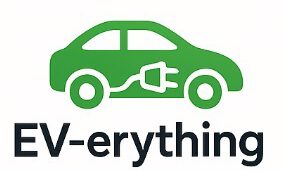🚗 Polestar 2 – Complete Pre-Purchase Checklist
🔋 1. Battery & Range
- Check the Projected Range at 100% charge and compare it to WLTP.
Large deviations may indicate battery degradation. - Ask about the charging history:
- Frequent DC fast charging can accelerate degradation (especially NMC packs).
- Verify whether the car has a heat pump (important for winter efficiency).
- Check battery temperature behaviour if possible (slow DC charging when warm = suspicious).
⚡ 2. Charging (DC + AC)
- DC fast charging test (if possible):
- Should reach 130–150 kW on Long Range / Dual Motor versions with a warm battery.
- AC charging test:
- Should charge steadily at 11 kW.
- Inspect the charging port lock mechanism, known to fail on early models.
- Check for repeated past errors such as:
- “DC charging unavailable”
- “Charging port error”
🚘 3. Powertrain & Driving Feel
Driveshafts / Axles (known weak point)
- Listen for:
- Clunk / knock when accelerating from a stop.
- Noise when switching from Drive → Reverse.
- Vibrations in pedals or floor at 30–80 km/h.
- “Nose-dive” or “nodding” when accelerating can indicate worn shafts.
Other drivetrain checks
- No pulling to one side during acceleration or braking.
- No vibration at highway speed.
- Acceleration should be smooth and linear.
🛞 4. Tyres & Wheels
- Check for even tyre wear – uneven patterns indicate alignment issues.
- Inspect brake discs for rust buildup (common on EVs).
- Look for rim damage, especially on 20″ wheels (very common on Polestar 2).
🧱 5. Known Weak Points – Check Thoroughly
- Front suspension top mounts / strut bearings – can cause knocking.
- 12V battery (early models had failures).
- Rear door seal leaks – check for moisture inside.
- Parking sensors and cameras may intermittently fail.
- Software-related issues such as:
- “Pilot Assist unavailable”
- “Front radar blocked”
- Check if all recalls and TSBs (Technical Service Bulletins) have been applied.
🛋 6. Interior & Exterior
- Inspect panel alignment; early cars had inconsistent build quality.
- Check doors, windows, charging flap, and tailgate motor function.
- Look for moisture in rear tail lights, a common issue.
- Test all seat heaters, steering heater, and climate cabin fan levels.
🧭 7. Autopilot / Driver Assistance Systems
- Test Pilot Assist:
- Lane keep performance
- Adaptive cruise smoothness
- Test all safety features:
- AEB (Automatic Emergency Braking)
- Collision warnings
- Lane departure warning
- Check the 360 camera view for blind or glitchy segments.
📱 8. Infotainment & Google Automotive
- Test Google Maps routing and latency.
- Test voice command (“Hey Google”).
- Spotify, Bluetooth streaming, phone calls.
- Check system version and look for available updates.
- Test all climate functions via the central screen.
🧾 9. Service, Warranty & History
- Verify digital service records in the Polestar system.
- Check:
- Outstanding recalls
- Battery warranty: 8 years / 160,000 km
- Bumper-to-bumper warranty: 3 years (sometimes 5 years depending on campaigns)
- Review previous repair history for:
- Driveshaft replacement
- Suspension repairs
- Charging port repairs
🏁 10. Test Drive – What to Pay Attention To
- Listen for:
- Front-end knocking (strut mounts)
- Driveshaft clunks
- Excessive wind noise around A-pillars
- Test:
- Full acceleration → should be smooth
- Regenerative braking on all levels
- Braking performance at different speeds
- Assess road noise on rough asphalt – P2 is naturally on the louder side, but not excessively.
—————————————————————————————————————————–
Do you want EV news in your mailbox every week – SUBSCRIBE
Do you miss anything regarding EV’s on this site – send an email to info@ev-erything.com
